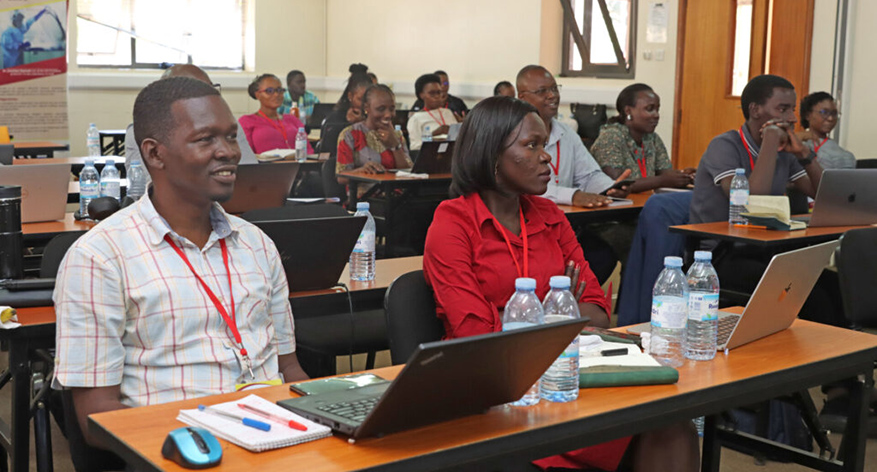EACCR3: Science communication beyond journal publications training workshop

The Eastern Africa Consortium for Clinical Research (EACCR) hosted a three-day workshop titled ‘Science Communication Beyond Journal Publications’ at the Uganda Virus Research Institute (UVRI), representing the Kenya Medical Research Institute (KEMRI-ARCH). This event was held from 19-21 February 2025 under the theme “Science Not Shared is Science Lost.”
Targeting early career researchers, including early postdocs, PhD, and MSc students, the workshop aimed to foster the development of creative science communication projects. Participants engaged in sessions designed to inspire innovative thinking and to reflect on the significance of effective communication in science.
During the workshop, 23 participants from various EACCR3 sites were awarded certificates of participation. The training was facilitated by a team of experts from KEMRI-Kenya and UVRI-Uganda, including Mr Davis Mkoji, Dr Patience Kiyuka, Mr John Wahome, Mr Waihiga Muturi, Mr Denis Ssesanga, Ms Nancy Nandudu, and Dr Benard Kikaire.
Topics covered included:
- Introduction to science engagement
- Science communication through print and digital media
- Developing a science communication plan and strategy
- Innovative science communication tool
- Using storytelling for science communication
The workshop also highlighted the importance of science communication for policy engagement. Dr Bernard Kikaire, speaking on behalf of EACCR3 project coordinator Prof. Pontiano Kaleebu, emphasised that “We conduct research in a political and social environment, and people’s ideas, beliefs, and knowledge influence how we interpret science. It’s crucial to plan how we communicate clearly for our messages to resonate with the audience.”
Participants were encouraged to apply their newly acquired knowledge to their current research projects, enhancing their ability to communicate science effectively. The creative sessions not only reinforced learning but also allowed participants to connect their insights with their work environments. This workshop represents a significant step towards strengthening science communication within the region.
